| Umělec magazine 2010/2 >> Antonio Negri in The Porcelain Workshop | List of all editions. | ||||||||||||
|
|||||||||||||
Antonio Negri in The Porcelain WorkshopUmělec magazine 2010/201.02.2010 Palo Fabuš | solutions | en cs de ru |
|||||||||||||
|
If we ask ourselves what (if any) unique message has been bequeathed to us by postmodern theory, the hardest work would be agreeing on what that message is. Its usefulness cannot be reduced to words like diffusion, ambiguity, mystification or mere skepticism; in all likelihood we would look for a solution in vain. The Italian neomarxist and political philosopher Antonio Negri, a leading personality of the autonomist movement, is convinced of this as well, reproaching postmodernist thought for irresponsibility, intellectual weakness, and inconsistency.
In his collection The Porcelain Workshop: For a New Grammar of Politics, published by semiotext(e), he defines postmodernity as a significant caesura, and factually rejects theoretical tendencies, embodied, for example, in the works of Anthony Giddens, according to which we do not experience any deep restructuring of reality but, a mere radicalization of the processes of modernity. Rejecting the conclusions of authors like Lyotard, Baudrillard or Virilio on the indeterminate situation of the ubiquitous fetishization and commodification of the world, he indicates that the legacy of the moral position of the Frankfurt school is relatively vulgar. Negri’s postmodern caesura manifests itself in four ways. The first is the current hegemony of immaterial work, as in cognitive, communicative and affective. The second consists of the expressions of sovereign powers which can be defined by recourse to Foucault’s term biopower, a power influencing all aspects of life, which transforms disciplinary society into a society of control. The third element concerns itself with the weakening of the role of the national state in the process of globalization to the benefit of Empire and the multitude. The fourth element is the real and definitive subsuming of society to Capital. These concepts of Empire and multitude are collected in a work called Empire written with Michael Hardt in the year 2000, which is regarded as the Communist Manifesto of the 21st century. By Empire these authors mean the powerful organizations of today constituted in three simultaneous ways: monarchistically (international organizations, NATO, the G8 states, etc.), oligarchically (supranational corporations) and democratically (the level of national states and non-governmental organizations). The power of Empire does not rest in any single position, but constantly shifts itself along networks created by imperial sovereignty and political subjectivity. The fundamental thesis of the book Empire is the claim that creativity and the political struggle of the proletariat always precedes and prestructures paradigm shifts of social and economic life under capitalism. Multitude is a concept whose origins reaches into ancient philosophy; Negri and Hardt’s presentation, however, arises from the political philosophy of Benedict Spinoza. Multitude comes first of all from the relation between consitutive paradigms (singularity, creativity, risk) and the employment of power. Capital was always capable of reducing the multitude as a collective into something singular and organic (class, people, the masses) but after the postmodern caesura this capability has gradually diminished. “The multitude must be perceived,” writes Negri, “as an inorganic, different and powerful multiplicity.” And later on, “The multitude’s unity of action is the multplicity of expressions it is capable of.” Discussing the multiplicity of expressions is thus entirely apt, when we take into consideration Negri’s fascination with the conversion to a post-industrial economoy with a metamorphosis of what is commonly understood by the term means of production. “Today we have the means of production in our head,” says Negri. Work has become identical to life. And if life has no ‘outside’ it must be lived entirely ‘inside’, its single dynamism can be the dynamism of potency (as biopolitical power, in the sense of puissance). Negri, along with Hardt, understands the multitude to be of primary importance as a significant realization of Spinoza’s distinction between the difficult-to-translate concepts of potentia and potestas. Even their English equivalents ‘force’ and ‘power’ call for a more full explanation: potentia comprises the bases of political power in effectively combined human activity, while potestas is centered on the mediated expression of political institutions and decisions. Negri sees a distinction in that these mediators were inescapable in Spinoza’s time, when society was deficiently under-developed, whereas today potestas are not concepts that are as essential as they once were. This is seemingly caused by the abstract, yet practically ubiquitous factor of measureability. Negri claims power is measureable, since leveling and inequity are valuable tools of discipline and control, whereas puissance is immeasurable, being a pure expression of irreducible differences. The main thought to which Negri continually returns is the crisis of all rules and paradigms of scale of the evolution of capitalism, the crisis of presuming this progress to be measureable, and the crisis of rational criteria. According to Negri it is not immeasurability, but the position of production in the processes of subjectivation entirely outside of the scope of measurability (e.g in the sense of temporality, private boundaries and common truth) that allows us to ponder the end of exploitation, at least as a propensity. The vertical line of the disruption of modern power relations by the opposition of the people subejcted to them intersects the horizontal line of the whole of life as it pertains to the field of power. Biopolitics is a self-contradictory context for life, i.e. it shows the extent of the economic and political contradictions on the level of the whole of society, but also the emergence of singularized points of resistance which saturate it. The Italian philosopher rejects essentialism, but also relativism—he sees solutions in the growth of subjectivity, in creative ontologies, such as those found in the radical feminist work of the 1990s of Judith Butler and Donna Haraway (here, the author is especially concrete in his otherwise quite abstract essays). We can only catch a glimpse of democracy on the horizon in its absolutely realized paradigm in the unity of the multitude. As told by the last sentence of Negri’s work, “To become the multitude is to become democracy.” Translated from Czech by Stephan von Pohl.
01.02.2010
Recommended articles
|
|||||||||||||
|
04.02.2020 10:17
Letošní 50. ročník Art Basel přilákal celkem 93 000 návštěvníků a sběratelů z 80 zemí světa. 290 prémiových galerií představilo umělecká díla od počátku 20. století až po současnost. Hlavní sektor přehlídky, tradičně v prvním patře výstavního prostoru, představil 232 předních galerií z celého světa nabízející umění nejvyšší kvality. Veletrh ukázal vzestupný trend prodeje prostřednictvím galerií jak soukromým sbírkám, tak i institucím. Kromě hlavního veletrhu stály za návštěvu i ty přidružené: Volta, Liste a Photo Basel, k tomu doprovodné programy a výstavy v místních institucích, které kvalitou daleko přesahují hranice města tj. Kunsthalle Basel, Kunstmuseum, Tinguely muzeum nebo Fondation Beyeler.
|








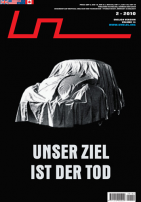

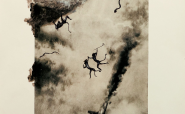

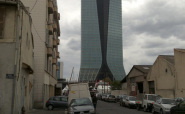
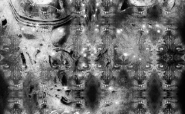







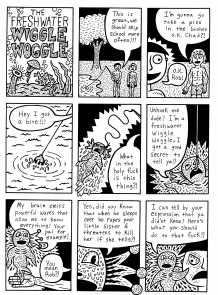




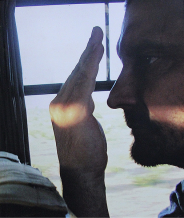
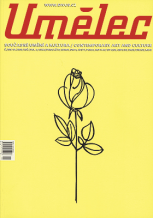
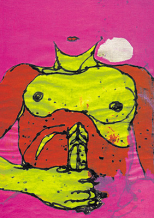
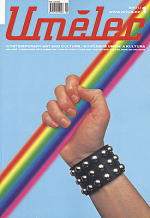


 We Are Rising National Gallery For You! Go to Kyjov by Krásná Lípa no.37.
We Are Rising National Gallery For You! Go to Kyjov by Krásná Lípa no.37.
Comments
There are currently no comments.Add new comment